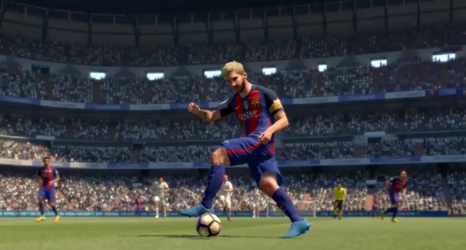LONDON — Before his first few appearances as a teenage striker for Arsenal, Alex Iwobi used to cast his eye over the names of the opposition team, trying to identify his direct opponent.
In most cases, he would find himself up against a player he had never faced. His manager, Arsène Wenger, and Arsenal’s coaching staff would offer counsel, but in lieu of experience Iwobi also would turn to another trusted resource.
“I’d look at his name,” he said, “and then try to remember how good he was on FIFA.”
For millions of soccer fans across the world, video games — primarily the record-high-selling FIFA series from Electronic Arts, but also its rival series Pro Evolution Soccer and the more cerebral Football Manager — act as both a gateway drug to soccer and, later, another way of satisfying an established addiction.
